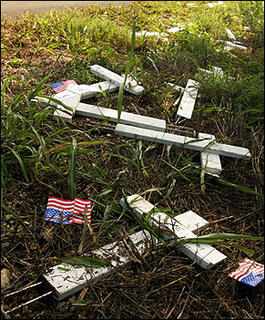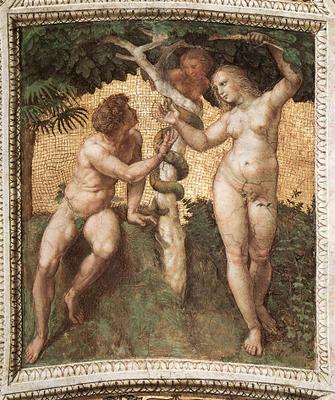
The 500 Hats of Bartholomew Cubbins is a children's book by Dr. Seuss. Unusually for a Seuss book, The 500 Hats of Bartholomew Cubbins is written in prose instead of rhyming and strictly metered verse.
Set in feudal times, the story begins in the Kingdom of Didd, when King Derwin is riding through a street past Bartholomew Cubbins, the main character. According to royal rule all citizens must remove their hats as the king passes by. Bartholomew, who has a red hat with a white feather in it, does so. However the Captain of the Guards approaches him, and Bartholomew finds that another hat has mysteriously appeared atop his head. He attempts to remove this, and finds that there is another identical red hat still on top of his head.
He is whisked off to the royal palace, where the King Derwin attempts several methods to remove Bartholomew's hat. Manual removal, Archery, and even witchcraft fail. Bartholomew continues to remove hats, and the official scribe keeps a running tally of all the hats that have been removed. The king's mean-spirited nephew suggests that he be beheaded, and so the king reluctantly sends him down into the dungeon. However the executioner explains that he is forbidden from executing somebody with their hat on, which provides a Catch 22 —he can't be executed for failing to remove his hat until his hat is removed, making his beheading impossible. He returns to the royal chamber, where it is decided he must be pushed off the highest tower.
As Bartholomew is climbing the stairs to the tower, however, he continues to remove hats. As he ascends, the royal scribe, who has kept count of all the hats he has removed so far, notices that the hats have become more elaborate, with more feathers and other decorations. At the top Bartholomew has an immense hat, with huge feathers and a large gemstone in the center. Instead of allowing his nephew to push Bartholomew off the tower, the king has a change of heart, and offers to buy the hat, which according to the royal scribe is the 500th hat. After this hat is removed no hat reappears, and Bartholomew is finally bare-headed. The king pays him 500 pieces of gold, and keeps the other hundreds of hats in a chest to remind him of his foolishness.
The story overall expresses confidence that leaders--even non-elected leaders--will do the right thing.
www.answers.com
--
This was a book, record, and animated movie in the 1940's. I remember it from the first grade in 1956 at Hexter Elementary. As precocious as I was at that age, I doubt I read it. This was also a time before TVs in the classroom, so I don't think I saw the movie then (besides, I remember the illustrations too well). My guess is that I listened to the recording while following along in the book as a reading development exercise.
Yesterday was the Feast of St. Bartholomew (Nathanial). One of the Twelve, he was martyred in Armenia... flayed alive and then beheaded. Michelangelo’s Sistine Chapel ceiling shows Bartholomew in Heaven, holding his own skin and the knife that was used to flay him.
On Wednesdays, I lead a small group of Christians in a prayer service (Matins) at Thanks-Giving Square in downtown Dallas. We use the Lectionary of the Anglican Church, and we honor the Martyrs of the Church at these services.
As I was preparing my simple teaching on St. Bartholomew, I kept thinking about The 500 Hats of Bartholomew Cubbins. I looked it up, and much to my surprise discovered an allegory of Christian theology; of Law, Grace, and Atonement.
- The Law stated Bartholomew must remove his hat to honour the King.
- No matter how hard Bartholomew tried to obey the Law, no matter how often he removed his hat, there was always another hat on his head. He continued to break the Law, even though he tried to obey it. Bartholomew was unable to obey the Law, inspite of his will to obey.
- Brought before the King, Bartholomew was condemned to death by the King's nephew (think of Satan accusing Job in the court of God). But the executioner refused to chop his head off, because the Law clearly stated that you must remove a person's hat before cuttingoff his head. So the Law is Righteous, and we are protected by the Law even as we are condemned by it. God's nature is Righteousness, and he can not deviate from his own Law.
- Bartholomew is brought back to the King's Court, the the King's nephew decides to take him to the highest tower of the castle, and there push him to his death (Satan's taking Jesus to the Temple tower, and Satan's "pushing" of Adam and Eve into the Fall both come to mind here).
- But on the ascent to the tower, Bartholomew keeps removing his hats in the vain attempt to save his life by obeying the Law.
- When he reaches hat number 500, the King admires it, and offers him 500 pieces of gold for it. Bartholomew sells the King the hat, removes it from his head, and discovers the breeze (Ruach of the Spirit?) blowing through his hair. That was the final hat.
- Bartholomew is pardoned, and the King keeps all 500 hats.
Simul justus et peccator.






